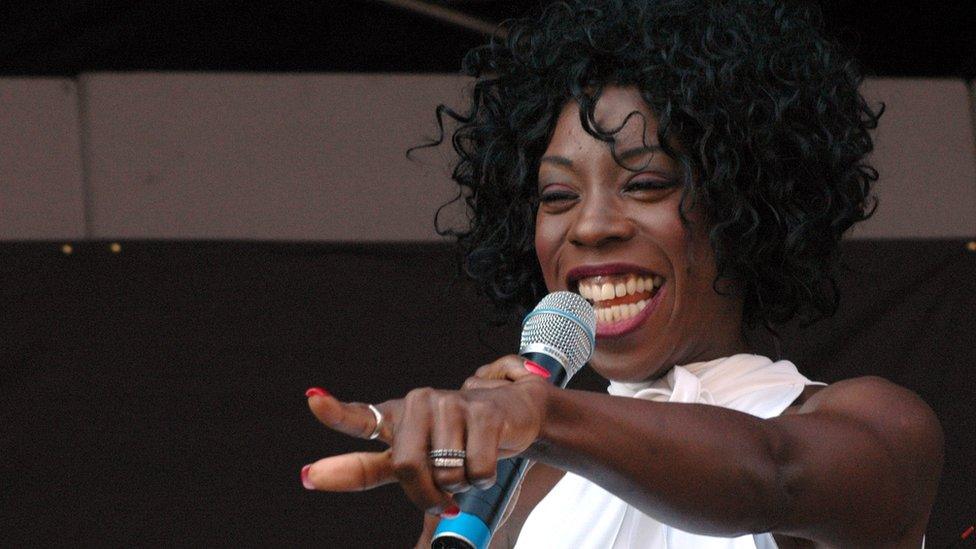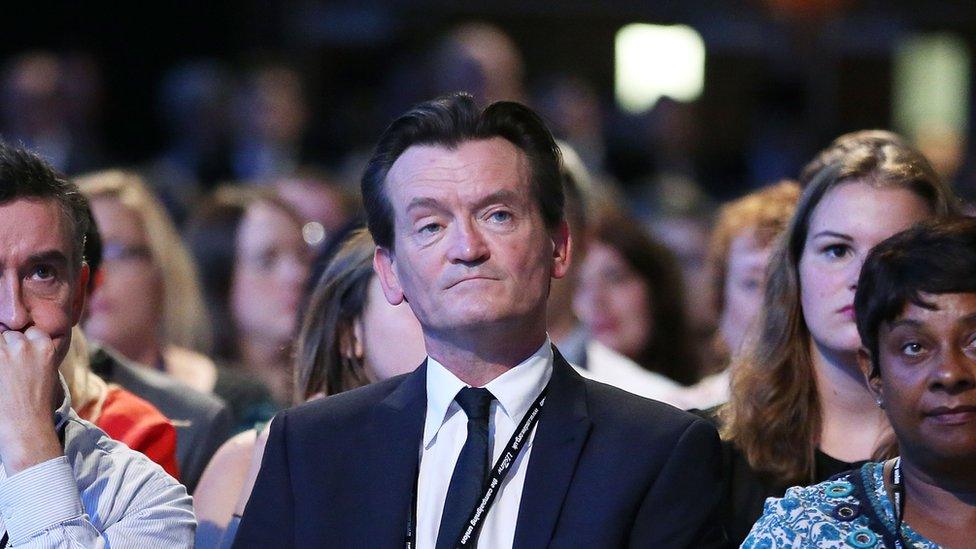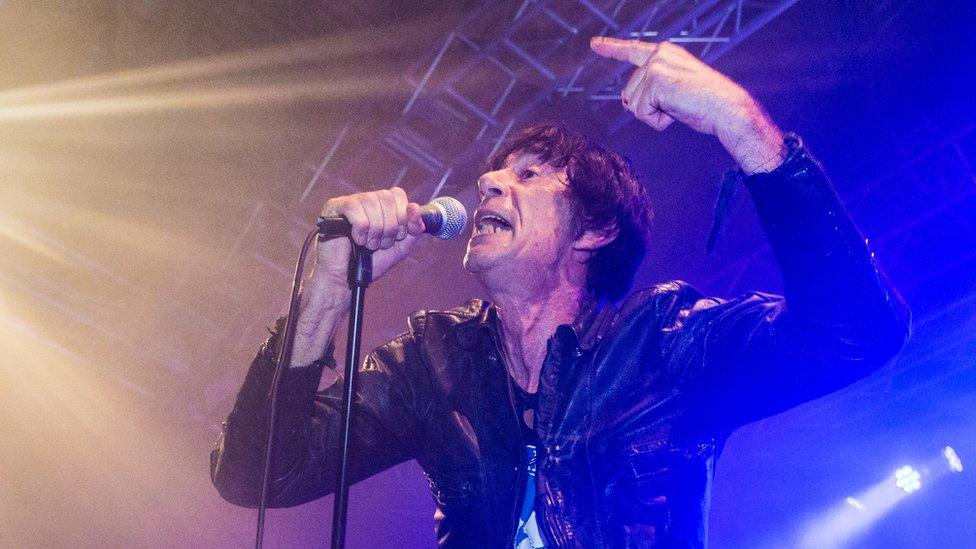Why do politicians use walk-on music?
- Published

M People's Heather Small is still pulling in the crowds
Like many a political leader before her Liz Truss turned to pop music to make a big entrance at her annual party conference.
It did not go down well with the band who created it - but why do politicians use music like this?
And what does their choice of walk-on track tell us about them?
There have been some bizarre choices over the years - Tony Blair once took to the stage to the angry sound of Seventies punks Sham 69.
At a time when the Labour Party was tearing itself apart, Sham's terrace anthem "if the kids are united, they will never be divided" seemed relevant.
Very occasionally, the music takes on greater significance. Who could forget Theresa May strutting on stage to Abba's Dancing Queen in 2018?
Hungover crowd
This was her comeback conference after the most disastrous speech in living memory, the previous year. She also wanted to show her human side.
To the music of Abba's Dancing Queen, Theresa May opens her conference speech
But often it is generic, stadium-filling soft rock that echoes around the auditorium, as drowsy, hungover party members and MPs take their seats.
Or Fatboy Slim's evergreen floor-filler Right Here, Right Now (more of him later), which can lend a sense of excitement to the most mundane of occasions.
Music is piped in to wake conference-goers up and get them in a positive mood, although it is a relatively recent arrival in British politics.
The political greats did not need a soundtrack - Sir Winston Churchill never walked on stage to the Glen Miller Orchestra or the Andrews Sisters.
'Lonely walk'
But music is everywhere now, particularly in the corporate world.
"You need music because it is a lonely walk to that podium. Can you imagine if you didn't have music?," says PR guru and commentator Mark Borkowski.
Music is a small detail, but conference organisers still need to get it right, to avoid the impression of being shambolic or slapdash, he says.
Which brings us to Liz Truss.
The prime minister's slogan this week is "Getting Britain Moving". So - in a literal-minded move - she walked on stage to Moving On Up, by 1990s hitmakers M People.
She is unlikely to have had much input into this - the track was personally selected by her press secretary, apparently.
(Although she did give a possible clue to her musical tastes in her speech, telling the party faithful the "status quo is not option".)
'Really upset'
But it provoked a furious reaction from producer and DJ Mike Pickering, who was one-third of M People.
He said the band was "quite left-leaning" and "really upset" and "livid" the track had been used.
He urged the PM to take note of the song's lyrics, which include the line "go and pack your bags and get out".
M People singer Heather Small's son, James Small-Edwards, who is now a Labour councillor in Westminster, was equally unimpressed, his twitter feed suggests, external.

Feargal Sharkey is a regular at Labour conferences
Mike Pickering joins a long list of musicians to have reacted with anger to politicians using their music.
Norman Cook - aka Fatboy Slim - furiously denounced Labour's use of his track at their 2004 conference, the year after the Iraq War.
"I hope the public, and especially my mates, will realise that I have not sanctioned the use of 'Right Here..' and that I do not sanction the war on terror.
"I do not secretly hang out at Downing Street of an evening with my mate Tony Blair," he told the NME, external.
The Rolling Stones fought a long-running battle, external to prevent Donald Trump using You Can't Always Get What You Want as his walk-off music at rallies.

Sham 69 singer Jimmy Pursey: Tony Blair once took to the stage to the angry sound of the Seventies punk band
Even Jimmy Pursey, of Sham 69, took umbrage at Labour's use of If The Kids Are United at their 2005 conference.
"Usually you see him [Blair] with Geldof and Bono, the jet-set political messiahs. I see my band as more of an SAS unit. We're outlaws," the veteran punk told The Times.
What annoys musicians as much as anything is that they have no control over who uses their music, under current copyright laws.
"The reality is once a song has been released into the public there is nothing the songwriter or recording artists involved can do to prevent it being used," says Feargal Sharkey, who had a string of hits with The Undertones and as a solo singer in the 1980s and is now an environmental campaigner.
He says he can understand Mike Pickering's anger at seeing the product of his "toil and effort and sweat and labour" politicised without his consent.
Have any of his past classics, such as Teenage Kicks or A Good Heart, ever been purloined by a political party?
"Nobody thinks any of my songs were good enough!"